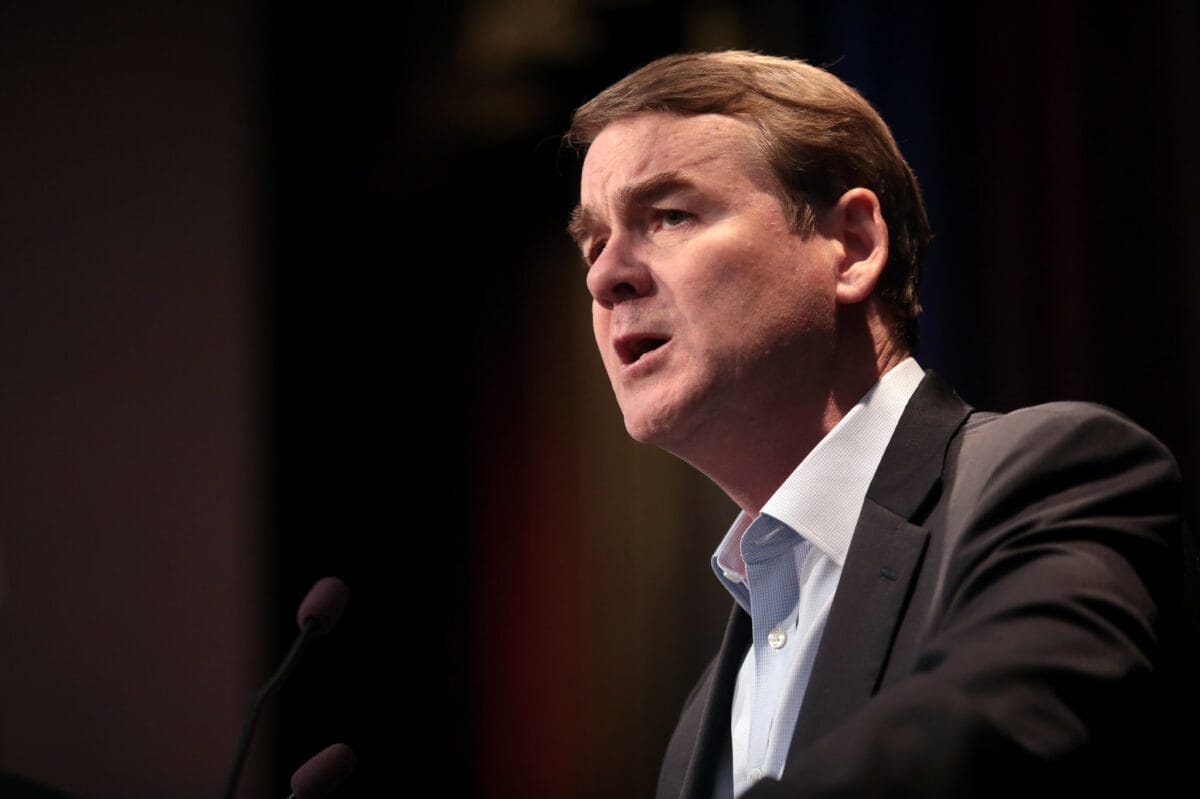Sen. Bennet Urges Companies to Consider ‘Alarming’ Child Safety Risks in AI Chatbot Race
Several leading tech companies have rushed to integrate their own AI-powered applications

WASHINGTON, March 22, 2023 — Sen. Michael Bennet, D-Colo., on Tuesday urged the companies behind generative artificial intelligence products to anticipate and mitigate the potential harms that AI-powered chatbots pose to underage users.
“The race to deploy generative AI cannot come at the expense of our children,” Bennet wrote in a letter to the heads of Google, OpenAI, Meta, Microsoft and Snap. “Responsible deployment requires clear policies and frameworks to promote safety, anticipate risk and mitigate harm.”
In response to the explosive popularity of OpenAI’s ChatGPT, several leading tech companies have rushed to integrate their own AI-powered applications. Microsoft recently released an AI-powered version of its Bing search engine, and Google has announced plans to make a conversational AI service “widely available to the public in the coming weeks.”
Social media platforms have followed suit, with Meta CEO Mark Zuckerberg saying the company plans to “turbocharge” its AI development the same day Snapchat launched a GPT-powered chatbot called My AI.
These chatbots have already demonstrated “alarming” interactions, Bennet wrote. In response to a researcher posing as a child, My AI gave instructions for lying to parents about an upcoming trip with a 31-year-old man and for covering up a bruise ahead of a visit from Child Protective Services.
A Snap Newsroom post announcing the chatbot acknowledged that “as with all AI-powered chatbots, My AI is prone to hallucination and can be tricked into saying just about anything.”
Bennet criticized the company for deploying My AI despite knowledge of its shortcomings, noting that 59 percent of teens aged 13 to 17 use Snapchat. “Younger users are at an earlier stage of cognitive, emotional, and intellectual development, making them more impressionable, impulsive, and less equipped to distinguish fact from fiction,” he wrote.
These concerns are compounded by an escalating youth mental health crisis, Bennet added. In 2021, more than half of teen girls reported feeling persistently sad or hopeless and one in three seriously contemplated suicide, according to a recent report from the Centers for Disease Control and Prevention.
“Against this backdrop, it is not difficult to see the risk of exposing young people to chatbots that have at times engaged in verbal abuse, encouraged deception and suggested self-harm,” the senator wrote.
Bennet’s letter comes as lawmakers from both parties are expressing growing concerns about technology’s impact on young users. Legislation aimed at safeguarding children’s online privacy has gained broad bipartisan support, and several other measures — ranging from a minimum age requirement for social media usage to a slew of regulations for tech companies — have been proposed.
Many industry experts have also called for increased AI regulation, noting that very little legislation currently governs the powerful technology.










